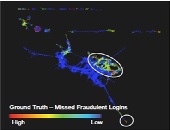Ethical Decision Making
Why do well-meaning people engage in unethical behavior? Given that a healthy financial market depends on trust, and that trust is earned through ethical behaviour, ethics are fundamental to ensuring the integrity of finance professionals. A panel of two experts in ethical decision making from the CFA Institute—Jon Stokes, Director, and Paul Johnson, Manager and Special Investigator—spoke live to an audience of about 700 on October 21, 2020 in celebration of Global Ethics Day 2020. A survey of 3500 retail investors showed which industry sectors they ranked as “highly trustworthy.” Medicine was at the top of the list, with 68 […]
Earthquakes kill, and so does bribery
“Bribery and corruption are not victimless crimes,” said Hilary Rosenberg, Managing Director and Global Head of Anti-Bribery & Corruption at Standard Chartered Bank. To drive home the point, she showed a brief video in which the pile of rubble from an earthquake is compared to a house collapsing because corruption allowed an unsafe building to be approved. Furthermore, corruption “can hinder economic progress and destroy people’s trust in their government,” Rosenberg said. She was the first of two speakers at the one-hour webinar “Corruption and Corporate Governance” sponsored by the Global Association of Risk Professionals (GARP) on October 30, 2019. Anti-corruption policy […]
Behavioral Analytics 2
Industry leaders in the field of behavioral analysis (Facebook, Apple, Microsoft, Google, and Amazon – FAMGA, as some call them) are “decision architects,” said Joe Mattey, Vice President of Enterprise Risk Analytics, and Chief Risk Officer at USAA. Typically a FAMGA product designer will put together a solution, such as a screen dialog, and fine-tune it over the course of many randomized, controlled trials, to see if the proposed solution gets the desired result—or whether some components need to be changed. In this way, behavioral analysis is looking not just at a decision outcome, it is looking at how that […]
Better Living Through Topology
“It gets downright annoying when I’m just trying to check my e-mail but I get prompted to answer three security questions,” said Alexis Johnson, voicing a concern shared by many in the audience when fraud detection is so overblown it obstructs ordinary use of software. Johnson, Director of Technical Sales at the big data analytics firm Ayasdi, was the second of two presenters at a webinar on the topic “The Fraud Arms Race” sponsored by the Global Association of Risk Professionals on April 21, 2015. When it comes to detecting fraud in big data, “data complexity, not volume, is the […]
The Fraud Arms Race: Neck and Neck
“It’s the fraud axiom: all the things we do to make things easier for the consumer also make things easier for the crooks,” said Randall Casciello, Advanced Analytics Senior Manager at the management consulting firm Accenture. He was the first of two presenters at a webinar on the topic “The Fraud Arms Race” sponsored by the Global Association of Risk Professionals on April 21, 2015. Fraud from payment cards costs the financial services industry around $12 billion annually, and is increasing at an alarming rate, about 15 percent annually, according to the Nilson Report. Casciello said fraud spans a wide […]
Fixing Broken Windows 4. Reducing Exposure To Investigations
“Staff training on policies and procedures is critical,” said Luke Cadigan, “to reduce exposure to insider trading investigations.” Cadigan, a partner in the Government Enforcement Group at law firm K&L Gates, was the final speaker in a four-part webinar on “Fixing Broken Windows” organized by GARP on March 11, 2014. Cadigan emphasized the message of the past three speakers, namely, that the Securities and Exchange Commission has become much more focussed on catching financial wrongdoing—from the lowest levels up. Investigations take time and effort and can be costly, thus, firms “want to convince the SEC staff there’s nothing there they […]
Fixing Broken Windows 3. Operation Perfect Hedge
The past seven years of Operation Perfect Hedge have been a “whirlwind,” said David Chaves, Securities Program Coordinator of the Federal Bureau of Investigation. He was the third speaker in the four-part webinar panel on March 11, 2014, “Fixing the Financial Industry’s Broken Windows,” sponsored by GARP. The undercover operation was born in 2007, amid the confluence of several factors that produced the financial crisis. At the time, there were a couple of “pump and dump” schemes but the FBI “couldn’t put anyone in,” Chaves said. Two individuals were identified by the Securities and Exchange Commission through market analysis. “Those […]
Fixing Broken Windows 2: How to be there when you’re not really there
“With only 4200 employees, the SEC must rely on force multipliers”, said Valerie Szczepanik, Assistant Director of the Asset Management Unit, Division of Enforcement, Securities and Exchange Commission. She was the second of four panellists at the GARP webinar “Fixing the Financial Industry’s Broken Windows” held on March 11, 2014. SEC Chair Mary Jo White has emphasized the SEC must be everywhere and appear to be everywhere, said Szczepanik, who outlined six factors helping the SEC carry out its mission in the face of increasing complexity in the financial world. The SEC is increasing its collaboration with other regulators and […]
Fixing Broken Windows 1. Game Changers and Whistleblowers
There is renewed focus on “pursuing small violations to prevent a culture where laws are not viewed as toothless guidelines,” said Amy Poster, Director for Risk and Regulatory Advisory Services at C & A Consulting LLC. She was the opening speaker in a four-part webinar panel titled “Fixing the Financial Industry’s Broken Windows” sponsored by GARP on March 11, 2014. Poster opened with a quote from a speech by Mary Jo White, Securities and Exchange Commission Chair: “The theory is that when a window is broken and someone fixes it – it is a sign that disorder will not be […]
Ain’t Misbehavin’. Part 1: Overconfidence and Illusion
“It’s not our ability that makes us, it’s our choices.” With this quotation from Harry Potter, Arnold Wood, President and CEO of Martingale Investments proceeded to show how, in case after case, a good grasp of behavioural finance could explain the workings of the typical investment committee. Wood was speaking to a few dozen charterholders at a luncheon sponsored by the CFA Society Toronto at the historic National Club in Toronto on June 3, 2013. Wood wove his commentary around three themes: key habitual errors of decision-making, the composition of committees, and the behaviour of the chair of the investment […]










